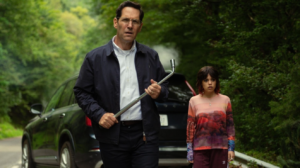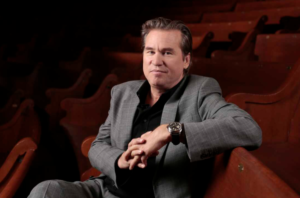The War On Drugs Reach Their Bright Full Potential on I Don’t Live Here Anymore

Image courtesy of The Independent
By Caleb Lovell
“We’re all just walking through this darkness on our own.”
This line from the title track of The War On Drugs’ long-awaited new record feels like a sort of spiritual mantra for a world that has lost its way in all its self-induced paranoia and division. But one likes to believe in the freedom of music, and I Don’t Live Here Anymore is an incredible dose of sonic sustenance.
The indie-rock pioneers have spent the last four years working on the follow-up to 2017’s Grammy-winning album A Deeper Understanding. After they had birthed two highly acclaimed and widely-recognized records, fans (and likely the group themselves) were left to wonder what was next in store for this band and how they would go about making the new record that would rival their last two masterpieces.
In terms of location, it seems like The War On Drugs do not live anywhere anymore, with its six members spread out in their residences across the United States. While the band’s leader Adam Granduciel was once a drifting musician on the streets of Philadelphia, he now lives in Los Angeles as the driving force behind one of the most powerful forces in rock ‘n’ roll.
But despite his rapidly-rising fame in the music scene, Granduciel’s outlook and approach to making music largely have not changed. On I Don’t Live Here Anymore, he remains the mystical, enigmatic songwriter that he has always been.
“Am I losing my faith? / We’re gonna lose it in time,” Granduciel sings on the chorus of “Harmonia’s Dream,” which is ironically one of the most blissfully euphoric tracks in the band’s entire catalog. Songs like these do not sound like they are coming from a man who has lost his faith, but rather one who has reclaimed it.
Even the title of the record suggests a different conceptual direction. “If you say, ‘I don’t live here anymore’ it means you’re still standing where you’re saying you’re not,” Granduciel remarks in an interview with The Independent. “It’s almost like you know where you don’t want to be. You know exactly what you’re not, but that doesn’t mean you know where you’re going.”
This philosophic uncertainty about life’s movements encompasses the album’s contemplative opening track, “Living Proof.”
“I can’t recall what I believe in / I’m always changing,” Granduciel sings over soft acoustic guitar strumming before the song transforms into a steady progression with delicately ethereal undertones that makes for a very serene listening experience.
In terms of musical composition, I Don’t Live Here Anymore may be the Drugs’ most vigorous performance to date. The record retains the band’s essence with the transcendent moments they are known for, such as the explosive energy at the end of “Old Skin,” while also taking the liberty to experiment with some radically different musical directions on tracks like “I Don’t Wanna Wait.”
The band’s 80s rock sympathies are also visible on this album; perhaps overly visible in some cases. But this quality does not overwhelm the record or stain its excellence. A prime example is the powerhouse track “Victim,” with its pulsating drum loops and synth-infused guitar bursts that are enough to send chills up the spine of 80s veterans and alternative music lovers alike.
Despite the nostalgic vivacity of this new record, The War on Drugs’ music has always been fueled by internal struggle. This quality applies both to the songs’ lyrical inspirations as well as to the process of crafting them musically. Granduciel has become known for his meticulous process in the studio; these obsessive tendencies drove him to his mental limits during the making of 2014’s breakthrough album Lost in the Dream.
But while the band’s last two albums seem to marinate in the “dreaminess” of this struggle, I Don’t Live Here Anymore turns a new corner. Its songs are bigger, livelier, and, frankly, they are more grounded. In essence, the group seems more comfortable in its own skin than it has ever been before.
The album’s closer, “Occasional Rain,” may portray this shift more clearly than any other track on the record. The song feels like an awakening from a bad dream that has lasted far too long. Granduciel’s lyrics display a newfound freedom of heart and mind that culminates in the powerfully simple final line of the record: “If loving you’s the same / It’s only some occasional rain.”
With this final song, along with many other moments on the record, it is apparent that Granduciel is moving on from something. It is uncertain what this will mean for the group’s direction, but as this album so beautifully demonstrates, change is not merely the closing of doors but the opening of new ones.
“At any level, the music should be filled with wonder,” Granduciel declares in an interview with NME. This approach to making music is what makes The War on Drugs one of the most groundbreaking and soul-searching acts in modern music. Their tremendous new record I Don’t Live Here Anymore reaches new heights and depths that push the band into vaster, brighter territory.






